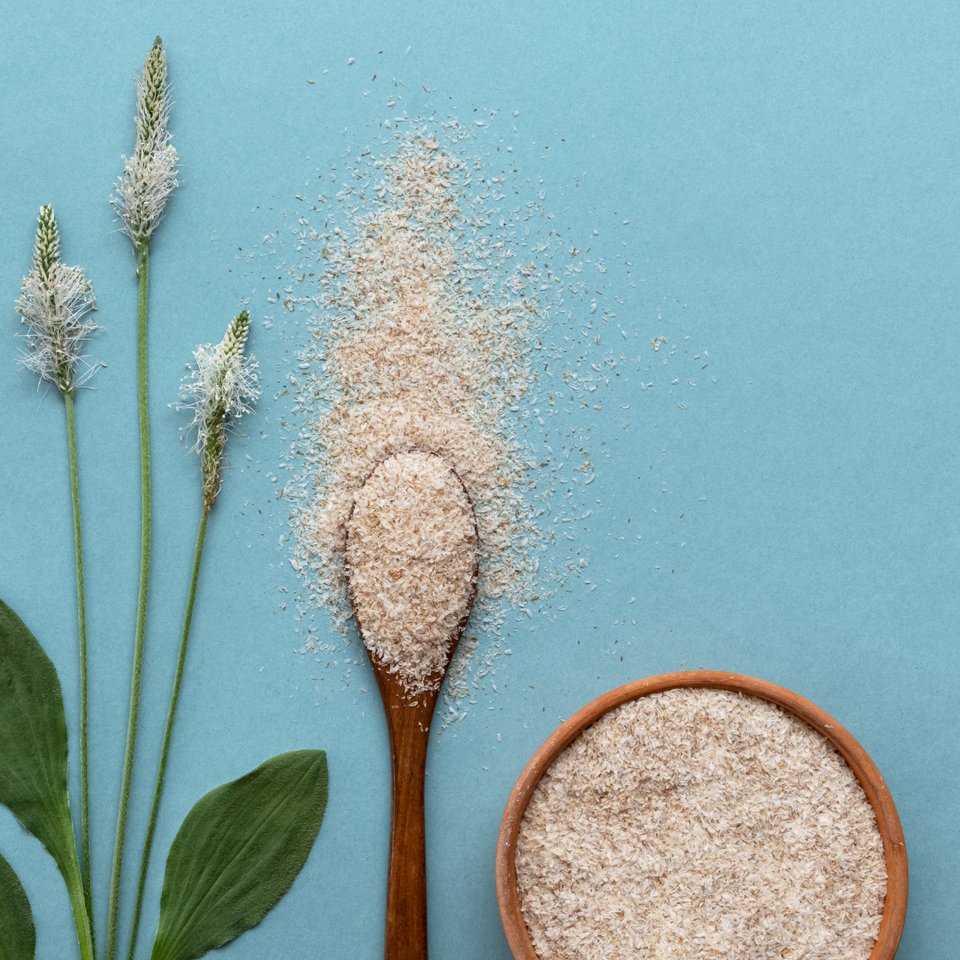You’ve heard the advice: “Eat more fiber!” But when it comes to choosing the right type of fiber for your health goals, especially during menopause, it’s important to know that not all fibers are the same.
Some dietary fibers, like psyllium husk fiber, are recognized by the FDA not only as safe but also as effective for reducing disease risk, and they’re allowed to carry official health claims on food labels. Others are FDA-recognized as safe and functional, but do not have FDA-approved disease risk-reduction claims.
Let’s break it down.
What Does “FDA-Endorsed” Mean?
The FDA allows certain ingredients to carry authorized health claims based on significant scientific agreement. In the case of dietary fiber, this typically means a specific fiber has been proven to reduce the risk of a disease, like heart disease or type 2 diabetes, and is therefore permitted to say so on a label.
This is different from the FDA simply recognizing a fiber as “dietary fiber” (which refers to its physiological effect, like promoting regularity or lowering blood glucose). Only a small number of fibers meet the high bar for health claims.
FDA-Endorsed Fibers with Authorized Health Claims
As of today, these 3 fibers have FDA-authorized health claims:
1. Psyllium Husk (Soluble)
- Claim: May reduce the risk of coronary heart disease
- Requirements: Must provide at least 7g of soluble fiber per day
- Common in: Metamucil, fiber supplements, high-fiber cereals, MyMenopauseRx Psyllium Husk
2. Oat Beta-Glucan
- Claim: Helps lower cholesterol and reduce heart disease risk
- Requirements: Must provide at least 3g per day
- Common in: Oatmeal, oat bran, certain cereals and granola bars
3. Barley Beta-Glucan
- Claim: Same as oat beta-glucan
- Requirements: Must meet daily intake and labeling conditions
- Common in: Hulled barley, barley cereals, whole grain blends
These fibers have undergone rigorous scientific review and meet FDA requirements for structure/function and disease-reduction claims.
Recognized But Not Endorsed for Health Claims
The FDA also recognizes many isolated or synthetic non-digestible carbohydrates as “dietary fibers” because they offer physiological health benefits. However, these do not have FDA-approved disease risk-reduction claims. They can still be listed as fiber on the Nutrition Facts label, but they cannot say they prevent or reduce disease.
Examples include:
FiberSMART®, for example, is GRAS (Generally Recognized as Safe) and may be labeled as “dietary fiber,” but it cannot make claims about lowering cholesterol or reducing disease risk.
Why It Matters for Women at Midlife
During perimenopause and menopause, your risk of heart disease, insulin resistance, and digestive irregularities increases. Choosing a fiber source that’s not only safe but also clinically proven to reduce disease risk can make a meaningful difference in your long-term health.
That said, all fiber is valuable. Soluble fibers help stabilize blood sugar and lower cholesterol. Insoluble fibers support regularity and gut motility.
Prebiotic fibers nourish your microbiome, which plays a role in metabolism, immunity, and mood.
Final Thoughts: Choose the Right Fiber for You
If your goal is to actively reduce cholesterol or heart disease risk, while improving gut health, look for psyllium or oat beta-glucan fibers backed by FDA-approved health claims. If you’re aiming to just improve gut health and regularity, inulin, resistant dextrin (like FiberSMART®), or soluble corn fiber can still offer important benefits.
MyMenopauseRx is committed to evidence-based guidance when it comes to your health. We help you cut through the marketing hype so you can make informed decisions that support your health today and for decades to come.





